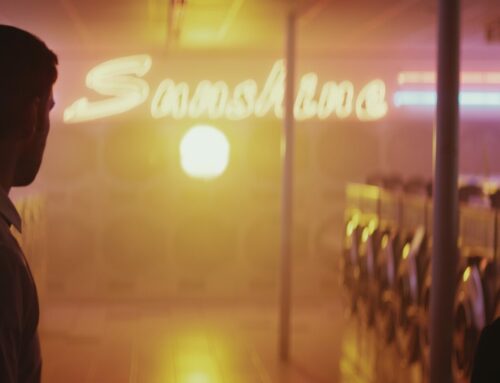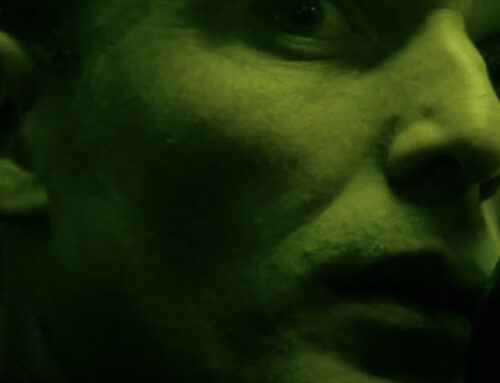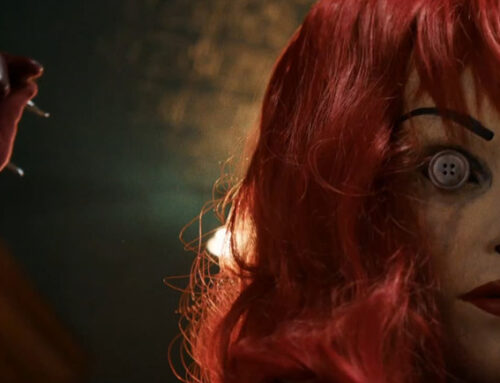Fantasia International Film Festival (FIFF) – Directed and co-written by Spanish filmmaker Igor Legarreta, Ilargi Guztiak (“All The Moons“) is a Basque-language film that tells a unique vampire saga set at the turn of the 20th century. It is a story that shows both how dangerous it is to be a child as well as how dangerous a child can be; and in the end, its story felt unlike most other vampire films to date, bittersweet in emotion yet oddly warm for a bloodsucker tale.
In All The Moons, a young girl named Amaia (Haizea Carneros) awakes as the lone survivor after her orphanage was destroyed in a bombing during the third Carlisle War. A cloaked figure appears among the rubble and brings Amaia to a woman that can heal her body if Amaia begs for her life to be saved. Though the woman invites Amaia into their hideaway of refugees as her daughter, they are soon discovered by soldiers, and Amaia is lost to the wilderness to fend for herself while experiencing painful changes to her body. One evening she is found by a lonely villager named Candido (Josean Bengoetxea), who, having lost both his wife and daughter, eagerly promises to care for her health and spirituality. Amaia eventually reveals that she has been touched by a demon and looks to the church for a way back to her human life, realizing that there is no life without death.
Director Igor Legarreta slowly but methodically builds an atmospheric world as moody and as brooding as Let The Right One In (2008), which had set a benchmark for child-vampire films for me. Like Let The Right One In, I feel that All The Moons similarly breathes new life into the vampire genre, even adding new alternative lore to the monster that is both logical and that made for an engrossing story. All The Moons stars Haizea Carneros, who approaches her role with vigor while expressing herself in a range that called for quiet as a mouse to blood-curdling screams as well as everything in between that an orphan girl experiencing war and vampirism for the first time would express — her role called for a great deal of maturity, and she rose to the occasion in every scene.
Furthermore, All The Moons had some of the most picture-perfect imagery I had seen out of the lineup of films at the 2021 Fantasia Film Festival. Some of the shots are just downright beautiful, with the film’s dreamier moments made to look something like an oil painting. The majority of the movie is dark and dreary, typical of pre-industrial period piece movies, however, All The Moons plays with the juxtaposition of darkness and lightness by switching to a brighter coloring and lighting towards the end despite that being exactly where the film’s most heart-wrenching moment takes place. The story spanned about 50 years and was covered in nearly 2 hours — though the pacing of this film is more on the slow burner side, I never lost interest, held captivated by the film’s imagery and phenomenal acting performances.
In short, All The Moons is simply fantastic and sets a new benchmark for vampire films! In horror, films usually get increasingly darker in both lighting and within the plot as the film progresses, however, All The Moons is structured in the opposite way, getting brighter in lighting and optimistic in its ending. Its ethereal imagery and bravery in taking artistic license with the character of a vampire all paid off, as All The Moons is quite sticky as far as resurfacing in my mind — I cannot wait to watch it again. It is required viewing for continual vampire canon, and anyone who can appreciate a melancholy period piece should enjoy this film.
The film will screen as part of the Fantasia International Film Festival, happening August 5-25.
8 out of 10
| All the Moons | ||
| RATING: | NR |
No Trailer Available |
| Runtime: | 1 hr. 42 min. | |
| Directed By: | Igor Legarreta | |
| Written By: | ||







